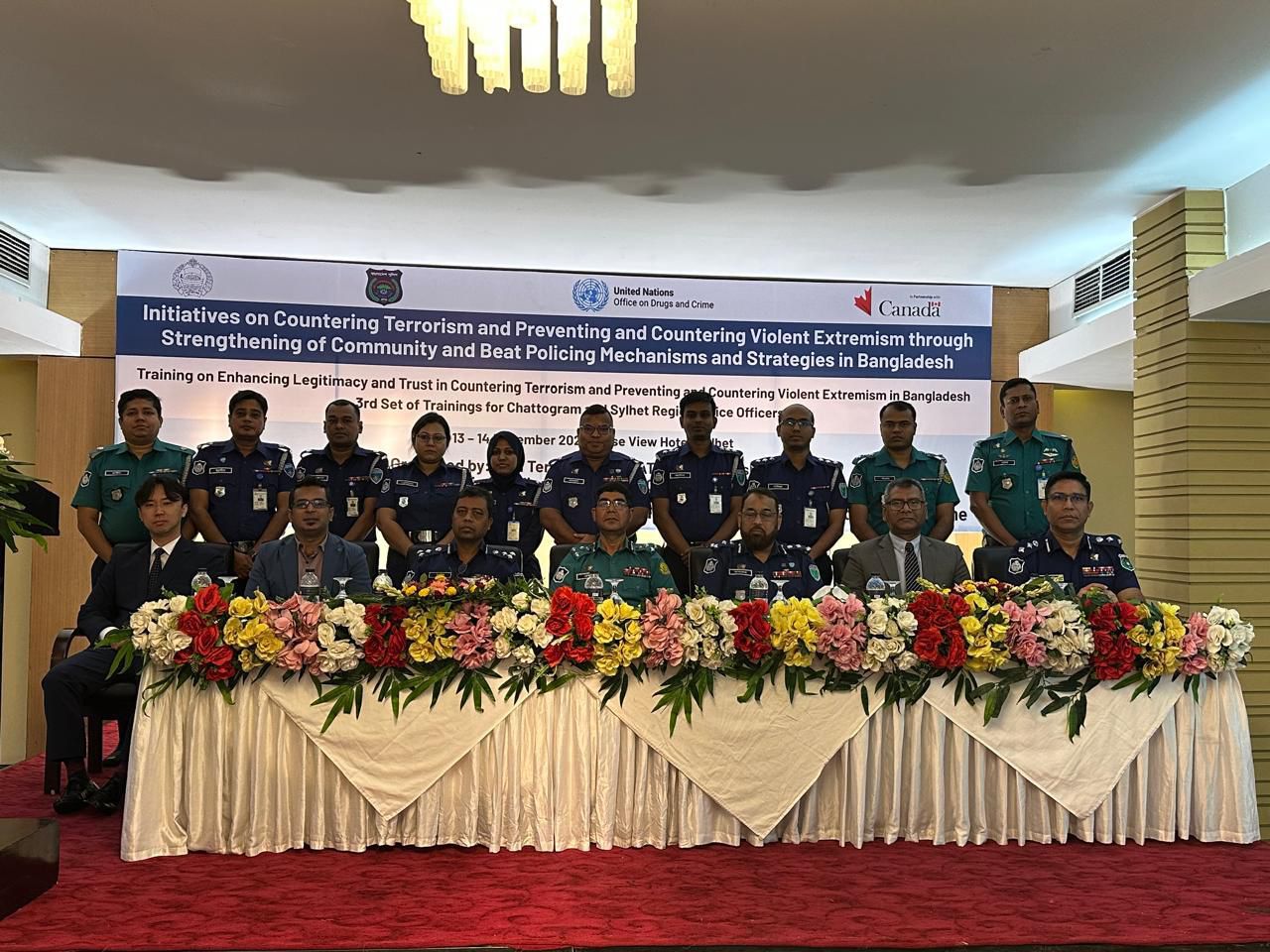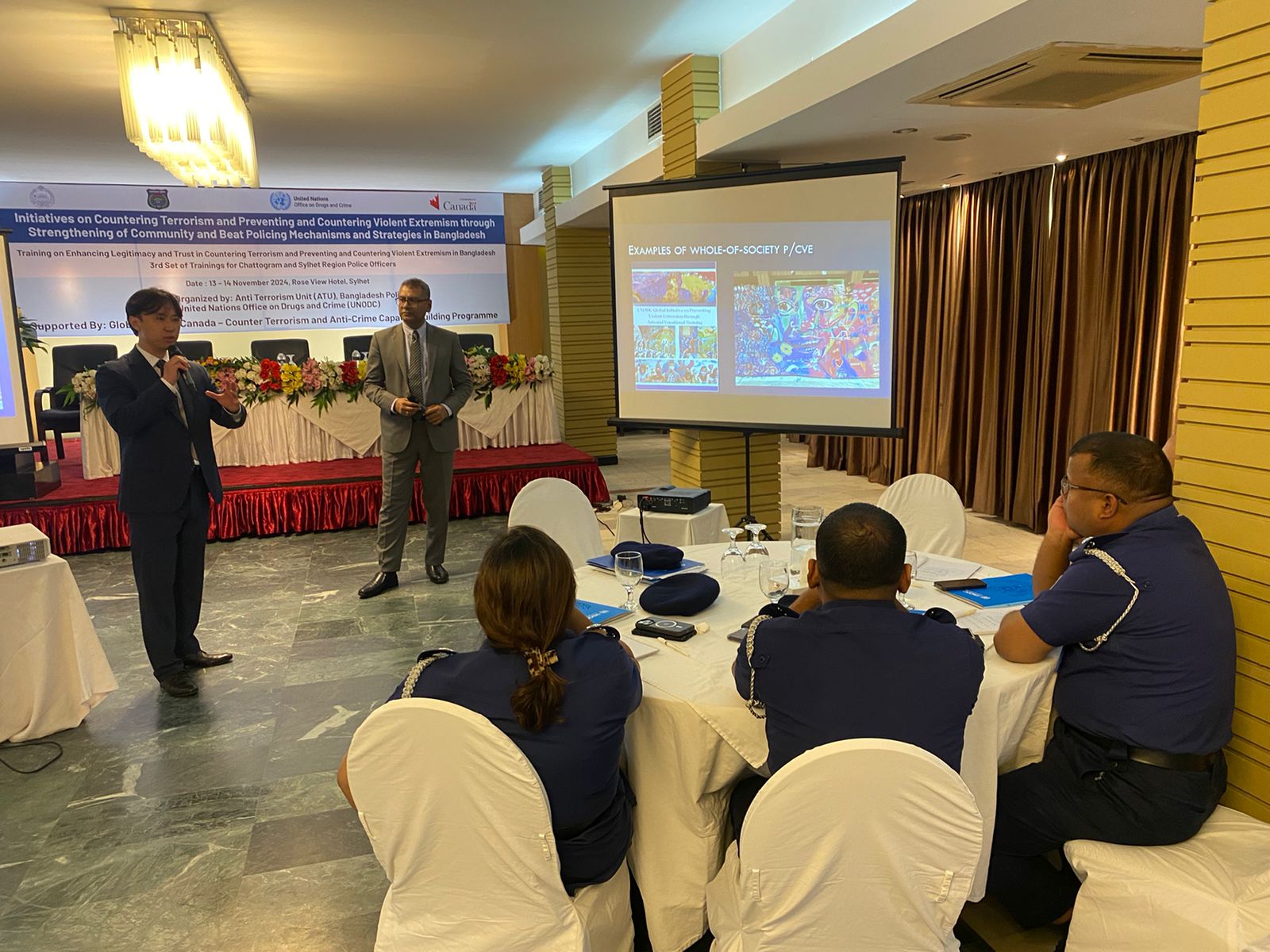Bangladesh: UNODC builds police capacities on enhancing legitimacy and community trust to countering violent extremism

Sylhet and Rangpur, Bangladesh/18 November 2024: Amid evolving security challenges in South Asia, building trust within communities has become a cornerstone of effective policing. In Bangladesh, where community and beat policing are integral to law enforcement, addressing the complexities of countering terrorism and violent extremism requires a strategic focus on legitimacy and trust.
Recognizing this need, 34 officials from the District Counterterrorism Units, Range Police, Metropolitan Police and the Anti-Terrorism Unit (ATU) in Sylhet and Rangpur were equipped with tools and knowledge to integrate trust-building into their counterterrorism efforts. Supported by Global Affairs Canada, the training was the third in a series of ongoing capacity-building initiatives being driven by UNODC and the Bangladesh Police.
The sessions addressed the evolving complexities of extremist threats by enhancing participants’ knowledge and applied skills. Discussions emphasized fostering trust as a critical component of modern policing, introducing strategies for promoting procedural justice, ethical leadership, and effective communication.

Through a mix of presentations, discussions, and practical exercises, participants worked on developing tailored action plans to integrate these strategies into their daily work, ensuring that trust-building becomes a sustainable practice within law enforcement operations.
The sessions provided insights into aligning policing practices with international best practices, ultimately enhancing public trust and reducing the appeal of extremist narratives.
The initiative reflects the Bangladesh Police's commitment to bridging gaps between policy and practice in addressing violent extremism. By fostering a community-centric approach to security, the trainings aim to strengthen the relationship between law enforcement and the public, promoting a more inclusive and resilient society.
The training was led by senior officials and partners, including Mr. Muhammad Muslim PPM, DIG (Intelligence & Operations), Anti-Terrorism Unit; Mr. Md. Rezaul Karim, BPM (Bar), Police Commissioner, Sylhet Metropolitan Police; Mr. Md. Mushfequr Rahman, DIG, Sylhet Range Police; Mr. Md. Mozid Ali, BPM, Police Commissioner, Rangpur Metropolitan Police; Mr. Aminul Islam, DIG, Rangpur Range Police; Mr. Shah Mohammad Naheeaan, National Programme Coordinator, UNODC and Mr. Simon Park, Associate Crime Prevention and Criminal Justice Officer, UNODC.
As part of the broader strategy, these trainings contribute to Bangladesh’s efforts to achieve the Sustainable Development Goals (SDGs), particularly SDG 16 on peace, justice, and strong institutions. Strengthening trust-based policing practices can pave the way for a safer and more peaceful future, ensuring that communities remain resilient against the challenges posed by violent extremism.
This activity contributes to SDG 16 and SDG 17: https://sdg-tracker.org/